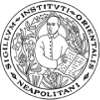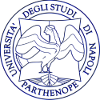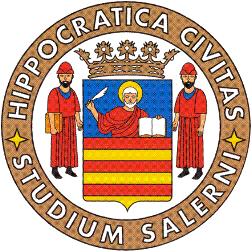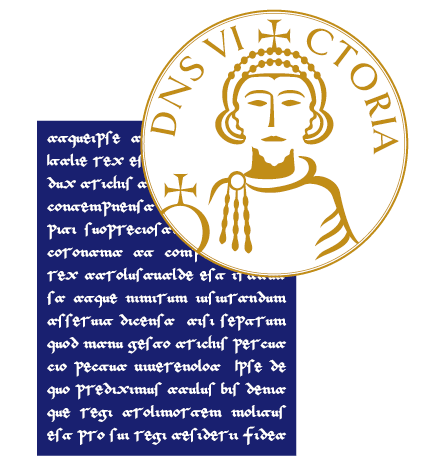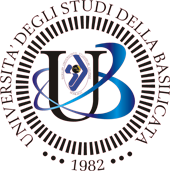About the Press
The following universities of Naples (Federico II, Istituto Orientale, Parthenope, Suor Orsola Benincasa), Campania Vanvitelli, Salerno, Sannio and Basilicata agree to publish, within the terms of the Universities SHARE (Scholarly Heritage and Access to Research) convention, in open access under their brand name or the imprint SHARE Press:
- scientific journals (SHARE Journals), on the SeReNa platform
- electronic Book Series (SHARE Books), on this FedOABooks platform
- research data and historical documentation (SHARE Open Archive), on the EleA platform.
The publication of journals, book series and other research outputs takes place at the instance of one of the partner universities.
Furthermore, through a protocol the Society of Naturalists in Naples and the CEA. University Publishing Center of the University of Cassino and Southern Lazio publish scientific journals, electronic books series, research data and historical documentation in open access.
| Requirements | Procedures for the Publication |
| Peer Review Process | Publication Ethics |
| Open Access Policy | Archiving |
| Statistics | |
Requirements
Publications must be original in content and in a format apt for verification and reuse in other research activities. They satisfy the following minimum requirements, verified at the time of the request for publication and monitored before the legal deposit of every journal issue or book.
Journals:
- the Managing Director or a member of the Editorial Board must be an on-staff member in the proposing university;
- faculty from both Italian and international universities other than the proposing one must be included among the members of the Scientific Committee, in order to guarantee the international relevance and quality of the publication;
- all texts, prior to publication, must be peer reviewed by at least two experts in the field, in the "double blind" mode; the actual use of this procedure must be certified with appropriate documentation;
- the periodicity of the publication (quarterly, four-monthly, biannual or annual) must be respected;
- the journal’s English interface on the Open Journal Systems platform must be implemented, complete with all descriptive metadata of individual issues and articles;
- all authors are required to declare in writing that they are aware that their scientific contribution is disseminated, for free, through the telematic networks and that it:
- does not in any way violate the applicable copyright laws nor the obligations associated with the safeguarding of the moral or economic rights of other authors or other rightholders, with respect to texts, images, photos, tables, and other contents;
- it is not the result of activities falling under industrial property law and is not subject to any patent registration;
- has not been produced under projects funded by public or private entities that have previously placed particular constraints on the dissemination of the results for reasons of confidentiality or privacy.
Book series:
- At least one faculty member in the proposing university must be part of the Scientific Committee of the Book Series;
- faculty from both Italian and international universities other than the proposing one must be included among the members of the Scientific Committee, in order to guarantee the international relevance and quality of the publication;
- all texts, prior to publication, must be peer reviewed by at least two experts in the field, in the "double blind" mode; the actual use of this procedure must be certified with appropriate documentation;
- title, abstract and keywords, both in the language of the publication and in English, must be indicated for each volume;
- The Scientific Committee is required to ensure that all authors declare in writing their awareness that their scientific contribution is disseminated, for free, through the telematic networks and that it:
- does not in any way violate the applicable copyright laws nor the obligations associated with the safeguarding of the moral or economic rights of other authors or other rightholders, with respect to texts, images, photos, tables, and other contents;
- it is not the result of activities falling under industrial property law and is not subject to any patent registration;
- has not been produced under projects funded by public or private entities that have previously placed particular constraints on the dissemination of the results for reasons of confidentiality or privacy.
Other research outputs:
For the publication of other research outputs, such as data and historical documentation, an exhaustive illustration of the scientific project in which they have been produced is required. It is preferable that:
- The Scientific Committee is international in its composition;
- The granting of funding was made following a peer review procedure;
- The Scientific Committee / Council undertakes to provide metadata (title, abstract, keywords and other elements of the Dublin Core) in Italian and English for each product;
- The Scientific Committee is required to ensure that all authors declare in writing their awareness that their scientific contribution is disseminated, for free, through the telematic networks and that it:
- does not in any way violate the applicable copyright laws nor the obligations associated with the safeguarding of the moral or economic rights of other authors or other rightholders, with respect to texts, images, photos, tables, and other contents;
- it is not the result of activities falling under industrial property law and is not subject to any patent registration;
- has not been produced under projects funded by public or private entities that have previously placed particular constraints on the dissemination of the results for reasons of confidentiality or privacy.
For journals, book series and other research outputs, a commitment to keep publishing on said editorial platforms for at least three years is required.
Procedures for the publication and verifying the quality of the contributions
The journals’ editorial boards or the book series’ scientific councils oversee the editorial processes through all their various stages. First of all, they invite scholars to submit proposals for articles or volumes. When an author presents a proposal (with the title of the contribution, abstract and brief profile of the author), the editorial board or the council evaluate its congruence with the journal’s or the book series’ purposes. If it appears to be congruent, the editorial board or the council entrust two editors to follow all subsequent publication phases. The editors are also given the task to provide the author with credentials to initiate submission of the manuscript through the Open Journal Systems platform (for journal articles), or Open Monograph Press (for book series). After the text has been uploaded on the platform by the author, it is discussed collegially by the journal's editorial board or by the series' council, which performs a first in-depth examination of its scientific value.
If the publication proposal is deemed to be of good quality, the journal's editorial board or the scientific council of the book series will identify at least two external referees chosen among the most well-known experts of the field, and ask the responsible editors for the article or volume to forward the article or the volume to the referees. The peer review follows the double-blind mode: referees and authors remain anonymous for the duration of the evaluation process. Articles are usually reviewed by the referee within 3 weeks; the volume of a single author within 2 months; edited volumes, with several authors, within 3 months. Based on the reviews submitted by the referees, the editorial board of the journal or the scientific council of the book series decide collegially whether to publish the manuscript in the form proposed by the author, to ask for changes in some or several of its parts, or to refuse the publication altogether.
It also formulates, for the benefit of the author, suggestions for improving the manuscript. The decision is then communicated to the author along with the referee's readings and the suggestions made by the referees, the editorial board or the scientific council.
After the author has revised his manuscript, taking into account the suggestions received, the article or volume, in word or ODT format, is entrusted to a copyeditor, which formats the text following the editorial norms of the journal or the book series. In the following phase, the text receives its final layout with Indesign and printed in PDF. In the final phase, the editorial manuscript and its metadata are subject to a review by FedOA Press's staff, which then proceeds to publish the manuscript online, provides an on-line legal deposit, assigns the article or volume unique DOI and NBN identifiers, and its long-period archiving references. The entire process takes place using OJS platforms for journals, and OMP for books.
Peer Review Process
All published articles and books are double-blind peer reviewed at least by two referees selected among high-profile scientists, in great majority belonging to foreign institutions. Reviewers should not have published with the author/editor or with any of the co-authors of the article/book during the past five years and should not currently work or collaborate with the institute of the author or of any of the co-authors of the submitted manuscript.
All reviews are archived on SHARE editorial platforms.
Publication Ethics and Publication Malpractice
The publication of manuscripts in peer-reviewed journals or book series is an essential model for SHARE.
It is necessary to agree upon standards of expected ethical behavior for all parties involved in the act of publishing: the author, the journal editor or the series editor, the peer reviewer and the publisher.
SHARE's ethic statements are based on COPE's Best Practice Guidelines for Journal Editors.
- Duties of Journal's Editors / Book Series Editorial Committee
- Publication decisions
- The editors of the Journals and the members of the book series editorial committees are responsible for deciding which of the articles/books submitted to the journal/series should be published.The editors/editorial board members may be guided by the policies of the journal/series's editorial board and constrained by such legal requirements as shall then be in force regarding libel, copyright infringement and plagiarism. The editors/editorial board members may confer with other editors/editorial board members or reviewers in making this decision.
- Fair play
- The editors/editorial board members at any time evaluate manuscripts for their intellectual content without regard to race, gender, sexual orientation, religious belief, ethnic origin, citizenship, or political philosophy of the authors.
- Confidentiality
- The editors, the editorial board members and any editorial staff must not disclose any information about a submitted manuscript to anyone other than the corresponding author, reviewers, potential reviewers, other editorial advisers, and the publisher, as appropriate.
- Disclosure and conflicts of interest
- Unpublished materials disclosed in a submitted manuscript must not be used in an editor's own research without the express written consent of the author.
- Duties of Reviewers
Contribution to Editorial Decisions
Peer review assists the editors/editorial board members in making editorial decisions and through the editorial communications with the author may also assist the author in improving the paper/book.
Promptness
Any selected referee who feels unqualified to review the research reported in a manuscript or knows that its prompt review will be impossible should notify the editor/editorial board member and excuse himself from the review process.
Confidentiality
Any manuscripts received for review must be treated as confidential documents. They must not be shown to or discussed with others except as authorized by the editors/editorial board members.
Standards of Objectivity
Reviews should be conducted objectively. Personal criticism of the author is inappropriate. Referees should express their views clearly with supporting arguments.
Acknowledgement of Sources
Reviewers should identify relevant published work that has not been cited by the authors. Any statement that an observation, derivation, or argument had been previously reported should be accompanied by the relevant citation. A reviewer should also call to the editors attention any substantial similarity or overlap between the manuscript under consideration and any other published paper/book of which they have personal knowledge.
Disclosure and Conflict of Interest
Privileged information or ideas obtained through peer review must be kept confidential and not used for personal advantage. Reviewers should not consider manuscripts in which they have conflicts of interest resulting from competitive, collaborative, or other relationships or connections with any of the authors, companies, or institutions connected to the papers/books.
- Duties of Authors
Reporting standards
Authors of reports of original research should present an accurate account of the work performed as well as an objective discussion of its significance. Underlying data should be represented accurately in the paper/book. A paper/book should contain sufficient detail and references to permit others to replicate the work. Fraudulent or knowingly inaccurate statements constitute unethical behavior and are unacceptable.
Data Access and Retention
If applicable, authors are asked to provide the raw data in connection with a paper/book for editorial review, and should be prepared to provide public access to such data, and should in any event be prepared to retain such data for a reasonable time after publication.
Originality and Plagiarism
The authors should ensure that they have written entirely original works, and if the authors have used the work and/or words of others, that this has been appropriately cited or quoted.
Multiple, Redundant or Concurrent Publication
An author should not in general publish manuscripts describing essentially the same research in more than one journal, book or primary publication. Submitting the same manuscript to more than one journal or book series concurrently constitutes unethical publishing behaviour and is unacceptable.
Acknowledgement of Sources
Proper acknowledgment of the work of others must always be given. Authors should cite publications that have been influential in determining the nature of the reported work.
Authorship of the Paper/Book
Authorship should be limited to those who have made a significant contribution to the conception, design, execution, or interpretation of the reported study. All those who have made significant contributions should be listed as co-authors. Where there are others who have participated in certain substantive aspects of the research project, they should be acknowledged or listed as contributors.The corresponding author should ensure that all appropriate co-authors and no inappropriate co-authors are included on the paper/book, and that all co-authors have seen and approved the final version of the paper/book and have agreed to its submission for publication.
Disclosure and Conflicts of Interest
All authors should disclose in their manuscript any financial or other substantive conflict of interest that might be construed to influence the results or interpretation of their manuscript. All sources of financial support for the project should be disclosed.
Fundamental errors in published works
When an author discovers a significant error or inaccuracy in his/her own published work, it is the author’s obligation to promptly notify the journal/series editors/editorial board members or publisher and cooperate with the editor to retract or correct the paper/book.
- Plagiarism Policy
All articles and books submitted to SHARE will be checked to detect plagiarism, also using software such as Compilatio, Turnitin or iThenticate.
A specific process is followed to manage a case of plagiarism.
SHARE follows the guidelines contained in the Committee on Publication Ethics (COPE) flowcharts (http://publicationethics.org/resources/flowcharts).
In the case of suspected plagiarism in a published article:
1) The person who advised SHARE of the situation is informed about the process to be followed.
2) The contributions are compared to check the degree of copying.
3) All Editors/Editorial Board Members of the Journal/Series are informed and asked for their comments.
4) The author of the article/book in question is contacted with documentary evidence of the case of plagiarism and is asked for a response.
If the author is found guilty of plagiarism:
1) The editors/editorial board members of the journal/series in which the original plagiarised contribution was published and the authors of the plagiarised article/book are informed;
2) SHARE publishes an official retraction of the paper/book;
3) The article/book is withdrawn from SHARE site;
4) SHARE will not publish any article/book of the author concerned for a period of 5 years.
Open Access Policy
This Press provides immediate open access to its content on the principle that making research freely available to the public supports a greater global exchange of knowledge.
All books and Journals are published under a Creative Commons Attribution Licence 4.0.
With the licence CC-BY, authors retain the copyright, allowing anyone to download, reuse, re-print, modify, distribute their contribution. The work must be properly attributed to its author and the site of first publication should be mentioned.
Copyright policies & self-archiving
| Author's Pre-print: | |
| Author's Post-print: | |
| Publisher's Version/PDF: | |
| General Conditions: |
|
Archiving
Thanks to the Centre for Libraries at "Federico II" University of Naples, Journals and books published on SHARE platforms adhere to Magazzini Digitali project, the national long-term digital preservation infrastructure for legal deposit of Italian publications according to the provisions of the Italian legal deposit law. A National Bibliography Number (NBN), a persistent identifier for the long-term conservation of digital resources, is assigned to each article and book.
SHARE Journals are included in the Public Knowledge Project Private LOCKSS (Lots of Copies Keep Stuff Safe) Network (PKP PLN), that offers decentralized and distributed preservation, seamless perpetual access, and preservation of the authentic original version of the journal. More...
The Centre for Libraries at "Federico II" University of Naples is involved in building a LOCKSS national digital preservation infrastructure to ensure secure and permanent preservation of journals and books. Therefore, SHARE publications will also utilize the Italian LOCKSS system, in order to create a distributed archiving system among participating libraries, and will permit those libraries to create permanent archives of the journals and the books series for purposes of preservation and restoration.
Statistics
| Years: | 2003-2012* | 2013 | 2014 | 2015 | 2016 | 2017 | Total |
| Current Series: | 2 | 3 | 4 | 5 | 8 | 10 | 10 |
| Published Books: | 14 | 2 | 4 | 3 | 4 | 14 | 43 |
| Days to review: | n.d. | 61 | 60 | 65 | 66 | 70 | 64,5 (Xm) |
| Days to publication: | n.d. | 170 | 190 | 187 | 185 | 200 | 186,4 (Xm) |
| Downloads from www.fedoabooks.unina.it: | / | 550 | 1150 | 1416 | 2258 | 4.159 | 9.533 |
| Google Books: Book Visits | 31.378 | 4.513 | 6.689 | 8.655 | 7.519 | 8.999 | 67.753 |
| Google Books: Book Visits with Pages Viewed | 28.351 | 3.711 | 5.889 | 7.727 | 7.040 | 8.338 | 61.056 |
| Google Books: Pages Viewed | 403.707 | 58.672 | 62.473 | 70.064 | 68.820 | 77.860 | 741.596 |
* Books published under the imprint ClioPress.






